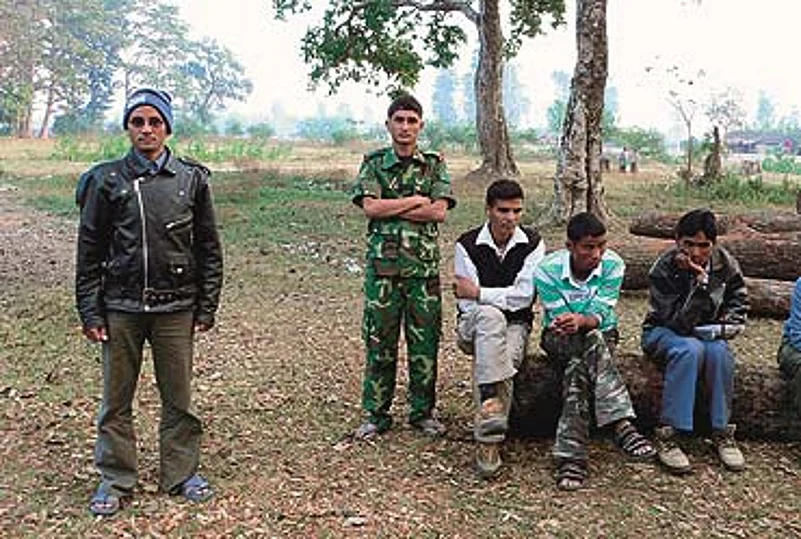
Conditions in rebel cantonments could influence the outcome of the peace process, warn military experts like Sir Sam Cowan, a retired British general who has travelled extensively in Nepal. "The situation demands a sense of urgency and this appears conspicuously missing," Cowan says, despite a series of peace agreements he describes as "pragmatic and workable". The UN secretary general's special representative in Nepal, Ian Martin, says the World Food Program and other agencies are ready to provide help to the camps, "but we need a request from the government, from the parties. The UN hadn't originally been asked to do this".
The pace of events—sometimes dragging, sometimes leaping forward unexpectedly—does seem overwhelming to many. Martin's UN operation is still being established in Kathmandu, and the Security Council in New York won't meet until January to hear his request for hundreds of arms management and election monitors to ensure the Maoists and the Nepali army follow the agreed rules. "For the UN, we're moving at lightning speed," said a diplomat close to the process, "but we are definitely not keeping up with demand and developments." Plans to put equal numbers of Maoist and army weapons into India-funded, locked shipping containers are still on hold as the UN deploys its forces, and the containers are moved to remote, rugged campsites.
Some 35 UN soldiers from nine countries are expected to be based in the camps by January-end. A dozen or so are arriving in the coming days. An India-backed idea to deploy ex-Gurkhas to manage arms until the UN is fully deployed is picking up support among Maoists and government leaders. But no one seems to know who would recruit, train and pay for such a battalion. "They are not wearing (UN) blue helmets, that is for sure," says a UN staffer in Kathmandu.
The biggest fear of most Nepalis is that a failure to arrange arms management quickly could jeopardise plans to hold constituency assembly polls in June—a key Maoist demand. That would put polls off until at least November, after the monsoon and Hindu festival season, sorely testing the rebel commitment to peace—already questioned by many here amid continuing reports of extortion and Maoist violence. "We did not fight this war to wait forever for change," warns Pahadi ominously. "And we won't."





















